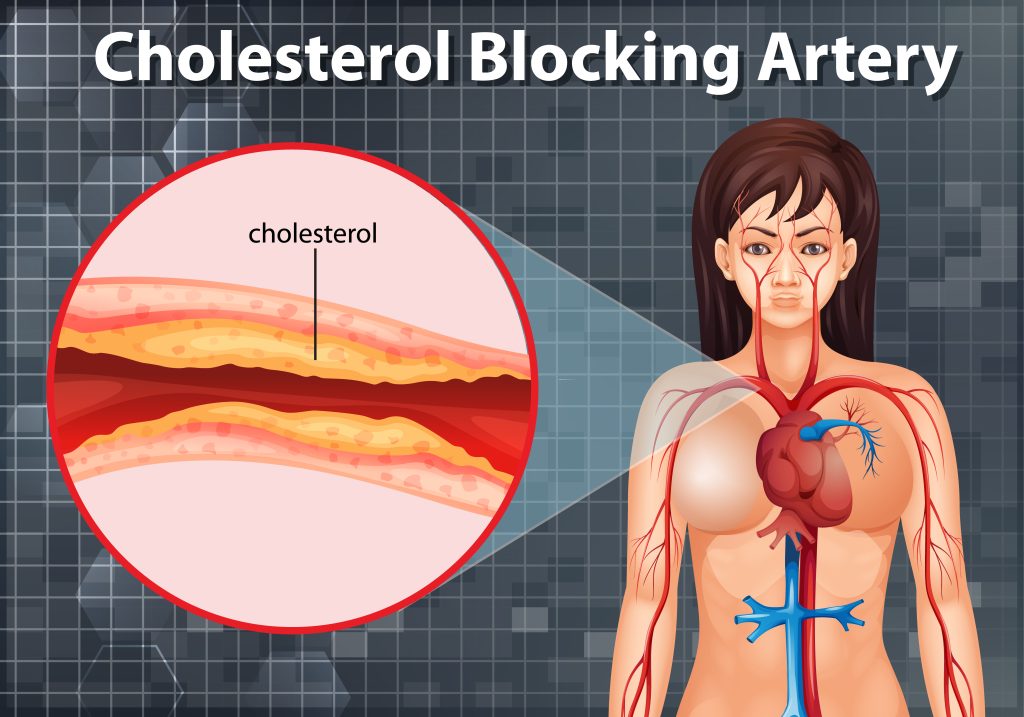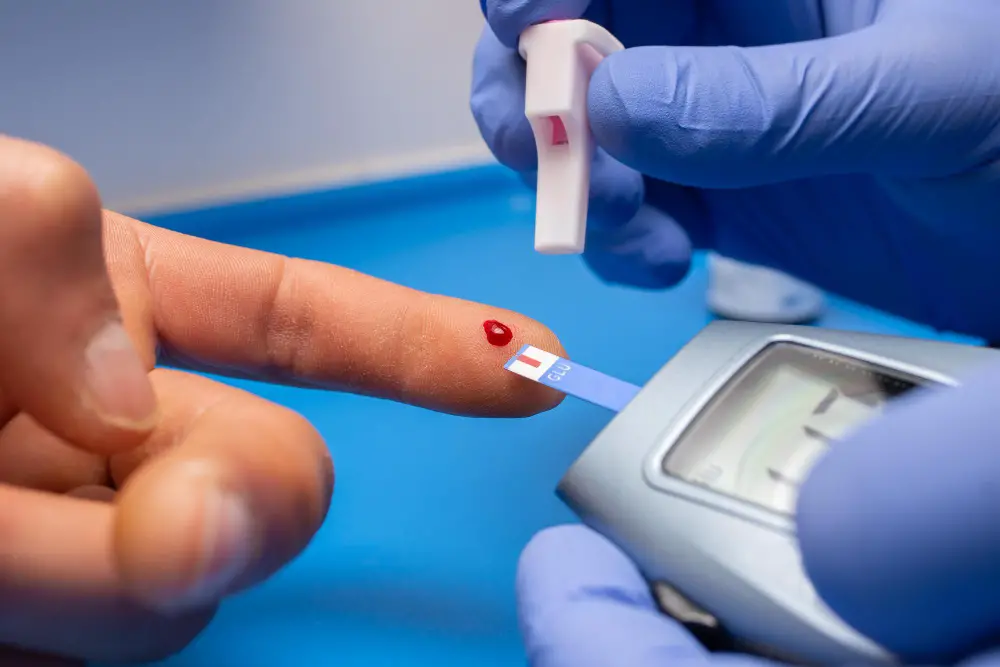
Debunking the Myth: The Truth About Stomach Gas and Heart Attacks
-
- Dr. Junaid Arshad
- March 20, 2023
- 0 comments
Table of Contents
Can Stomach Gas Cause a Heart Attack?
No, stomach gas cannot cause a heart attack. Stomach gas and heart attack are two different conditions that have different underlying causes. Stomach gas occurs when air or gas is trapped in the digestive system, which can cause discomfort and pain in the abdomen and chest. Heart attack, on the other hand, is caused by a blockage in the blood vessels that supply blood to the heart muscle.
A heart attack occurs when the blood flow to the heart muscle is restricted, usually due to the buildup of plaque in the coronary arteries.
This plaque buildup can cause a blood clot to form, which can block the flow of blood to the heart muscle.

When this happens, the heart muscle can be damaged or even die if blood flow is not restored quickly.
While the symptoms of stomach gas can sometimes mimic the symptoms of a heart attack, such as chest pain and discomfort, stomach gas cannot cause a heart attack.
The pain and discomfort associated with stomach gas are usually caused by the buildup of gas in the digestive system and are not related to the blockage of blood vessels in the heart.
It is important to note that chest pain or discomfort can be a symptom of a heart attack, and anyone experiencing these symptoms should seek medical attention immediately to rule out any serious health issues.
What is a Stomach Gas?

Stomach gas, also known as intestinal gas, is a normal byproduct of digestion that can cause discomfort and pain in the abdomen and chest.
It is composed of gases like nitrogen, oxygen, carbon dioxide, hydrogen, and methane that are produced during the breakdown of food in the digestive system.
The gas can be trapped in the intestines, causing bloating and distension, or it can be expelled through belching or flatulence.
Stomach gas can be caused by a variety of factors, such as eating too quickly, consuming carbonated beverages, and swallowing air while talking or chewing gum.
While stomach gas is a common condition that can be uncomfortable, it is typically not a serious health concern.
Symptoms of Stomach Gas
The symptoms of stomach gas can vary from person to person, but some common symptoms include:
Bloating: Feeling full or swollen in the stomach area
Belching: Releasing gas through the mouth with a sound or odor
Flatulence: Passing gas through the rectum
Abdominal pain or discomfort: Cramping, sharp or dull pain, or a feeling of pressure
Nausea or vomiting: Feeling queasy or sick to the stomach, or vomiting
Loss of appetite: Not feeling hungry or wanting to eat
Constipation or diarrhea: Changes in bowel movements, such as infrequent or hard stools, or loose or watery stools
These symptoms can be mild or severe, and they can occur sporadically or persistently. Some people may also experience symptoms like heartburn or acid reflux, which can be caused by the buildup of gas in the stomach pushing acid into the esophagus. In rare cases, stomach gas can cause serious symptoms like chest pain or difficulty breathing, which may require medical attention.
Treatment and Prevention of Stomach Gas
There are several ways to treat stomach gas. Here are some suggestions:
Change your eating habits: Eating too quickly or swallowing air can cause gas. Try eating more slowly and chewing your food thoroughly. Avoid eating large meals and try to eat smaller, more frequent meals throughout the day.
Avoid gas-producing foods: Certain foods can cause gas, such as beans, lentils, broccoli, onions, cabbage, and carbonated beverages. Try avoiding these foods or reducing your intake of them.
Drink fluids: Drinking plenty of fluids can help move gas through your digestive system. Try drinking water or non-caffeinated herbal teas.
Exercise: Physical activity can help move gas through your digestive system. Try taking a walk after meals or doing some light exercise.
Take over-the-counter medications: There are several over-the-counter medications that can help relieve gas, such as simethicone, which breaks up gas bubbles in the digestive tract.
Try natural remedies: Some natural remedies, such as peppermint tea, ginger, or chamomile tea, may help reduce gas and relieve symptoms.
If your symptoms persist or are severe, it’s important to consult a healthcare provider to rule out any underlying conditions.
Characteristics of Pain Due to Stomach Gas

Pain related to stomach gas can vary in intensity and duration, but it is usually described as a sharp, stabbing pain or a dull ache.
The pain may be felt in the upper abdomen or lower chest, and it may be accompanied by bloating, cramping, and a feeling of fullness or pressure.
The pain may be exacerbated by eating, especially foods that are known to cause gas, such as beans, onions, and broccoli.
It may also be relieved by passing gas or having a bowel movement.
Other common symptoms of stomach gas include belching, flatulence, and a feeling of abdominal distension.
These symptoms can be uncomfortable, but they are usually not serious and can be managed with lifestyle changes and over-the-counter medications.
Characteristics of Pain Due to Heart Attack

The pain due to a heart attack is typically described as a crushing, squeezing, or heavy pressure sensation in the chest. It may also be felt in the arms, neck, jaw, back, or stomach.
The pain can last for several minutes or come and go, and it may be accompanied by other symptoms such as:
Shortness of breath: difficulty breathing or feeling like you can’t catch your breath.
Sweating: sudden sweating or feeling clammy or cold and sweaty.
Nausea or vomiting: feeling like you need to vomit or actually vomiting.
Dizziness or lightheadedness: feeling faint, dizzy, or lightheaded.
Fatigue: feeling unusually tired or weak.
Anxiety: feeling a sense of impending doom or anxiety.
It’s important to note that not everyone experiences all of these symptoms, and some people may not experience chest pain at all. Women, elderly people, and people with diabetes may experience different or more subtle symptoms.
If you or someone else is experiencing any of these symptoms, call for emergency medical help immediately. A heart attack is a medical emergency, and prompt treatment can improve the outcome.
Another difference between the pain of a heart attack and that of any other reason including stomach gas is the duration of pain.
Pain due to a heart attack lasts for somewhere between 2-30 minutes. It’s usually never less than 2 minutes.
Pain due to non-cardiac causes may last for days or weeks.
It is important to note however that heart attacks sometimes present in an atypical manner. Therefore chest pain should always be evaluated by a cardiologist.
A separate article explains in detail the nature and duration of pain due to a heart attack. Click here
Stomach Gas vs Heart Attack – Table Summarizing the Differences
Here are some differences between stomach gas and a heart attack:
| Characteristics | Stomach Gas | Heart Attack |
|---|---|---|
| Pain Location | Upper abdomen, lower chest | Chest, arms, neck, jaw, back, or stomach |
| Pain Sensation | Sharp, stabbing, or dull ache | Crushing, squeezing, or heavy pressure |
| Pain Duration | Temporary and episodic | Persistent and prolonged |
| Accompanying Symptoms | Bloating, belching, and flatulence | Shortness of breath, sweating, nausea or vomiting, dizziness or lightheadedness, fatigue, and anxiety |
| Trigger Factors | Eating certain foods | Physical exertion, emotional stress, or no apparent trigger |
| Risk Factors | Eating habits, certain foods, and medical conditions such as irritable bowel syndrome | Age, family history, high blood pressure, high cholesterol, smoking, and diabetes |
It’s important to note that the symptoms of a heart attack can vary greatly between individuals, and some people may not experience chest pain at all. If you suspect you or someone else is experiencing a heart attack, it is important to seek emergency medical help immediately.




